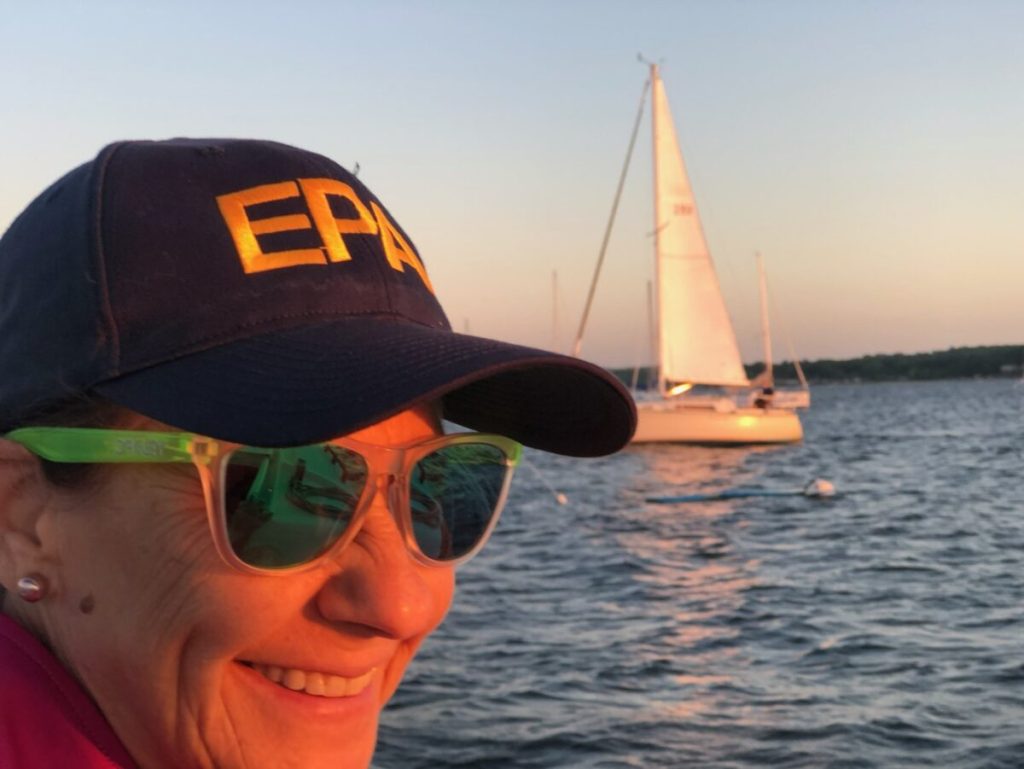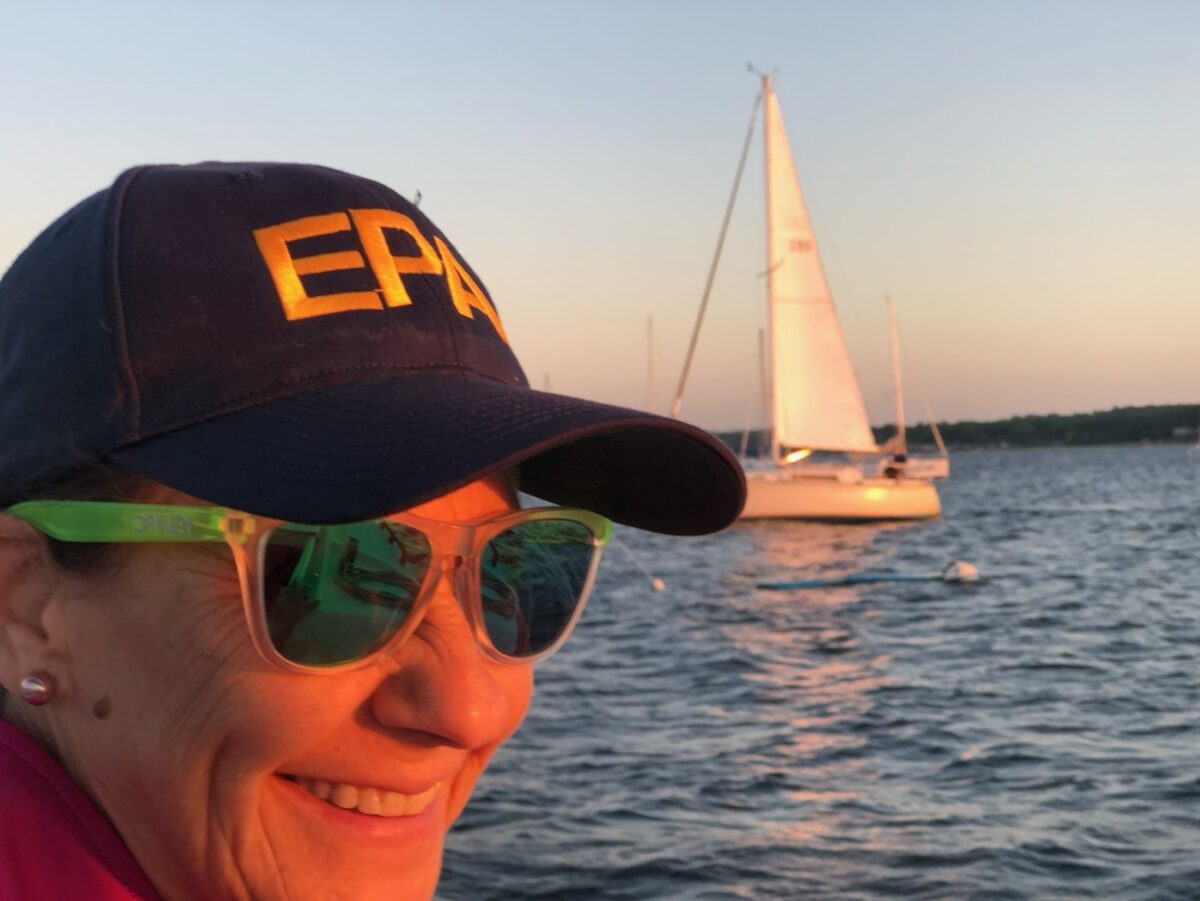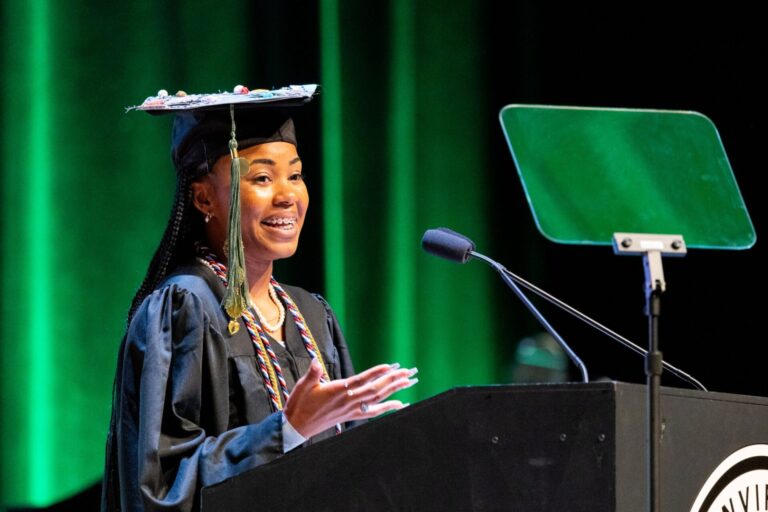
A Spotlight on Unity Alum Gloria Sosa, Class of ’80
When Gloria Sosa arrived at Unity in the late 1970s, she came from New York City with a camper’s heart and an open mind. “I thought I wanted to be a forest ranger,” she says with a smile. “I loved the outdoors. Unity opened my eyes to the science behind the world, and that changed everything.”
(Photo courtesy of Gloria Sosa)
She was one of roughly 100 women in a student body of 400. After earning her degree in Environmental Science in 1980, Gloria went on to complete a master’s in Applied Science at New York University. She built solar collectors on rooftops and helped install a tidal energy machine beneath the Brooklyn Bridge. After schooling, Gloria put what she learned into action in a career with the U.S. Environmental Protection Agency (EPA) that spanned 30 years, leading cross-functional teams, managing Superfund cleanups, and becoming an advocate for environmental communication and justice.
“My job was to coordinate the experts,” she says. “And then explain everything in a way that people could actually understand.”
For Gloria, her role at the EPA was never about showing off knowledge. It was about sharing it to build a connected sense of understanding.
She recalls heated community meetings where parents worried about contaminated drinking water and rising cancer rates. “Sometimes people met me at the door with a shotgun,” she says. “But when you listen, really listen, and come back with clarity and respect, things change. People start to trust you. And once there’s trust, there can be progress.”
Gloria built her career at the intersection of science and empathy. “We trained constantly in public speaking, negotiation, presenting to communities. Because you can be brilliant, but if no one can understand you, it doesn’t matter.”
That belief that knowledge without accessibility is powerless is what eventually brought Gloria back to Unity.
She returned in 2006 as a board member, serving for 16 years and helping the university navigate some of its most complex transitions. What she saw during that time affirmed everything she believed about the power of environmental education and the environmental sciences, and the importance of evolving to meet the needs of a changing world.
“What Unity is doing today is extraordinary,” she says. “They’ve taken everything that made the college special in the 80s. The passion, purpose, hands-on experience, and made it available to people across the country who might have never had that access before.”
She knows what it’s like to be “the only woman in the room,” especially in the early days of environmental science. “When I started at EPA, there weren’t women in the field. Now I look at Unity’s students, so many are women. They’re leading, digging soil samples, writing, presenting, taking up space with confidence. That means something.”
And she’s clear: what Unity is doing now, it’s not just about survival. It’s about the people the university is empowering.
“I’ve met Unity graduates from the Distance Education program who are just as sharp and passionate as any I’ve seen from Tufts. They can write. They can communicate. They understand the needs of the environments they call home. They’re out in the field. This isn’t just online learning. It’s real and the students are changing the world everywhere they are.”
What began as a small environmental college in rural Maine has become a national movement bringing the environmental sciences to people who have long been excluded from it. And Gloria’s story is proof that when access meets opportunity, powerful things happen. When people are given the tools to understand the world around them, they don’t just rise, they uplift countless others.
Now retired, Gloria remains an active mentor and advocate. She lives on Long Island, New York, with her husband, George Williams and they enjoy sailing. She is still camping, still advocating for others, still paying close attention to the world and communities she’s spent a lifetime working to protect.



